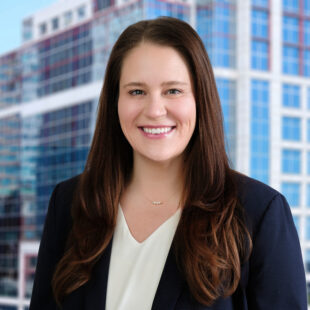On April 17, 2021, the Small Business Administration (“SBA”) quietly rolled out a new website for the much-anticipated Restaurant Revitalization Fund (“RRF”) program. The website includes, among other things, a sample Application and Program Guide. A copy of the Program Guide can be found here and a copy of the of the sample Application can be found here.
The RRF was established as part of the $1.9 trillion American Rescue Plan Act of 2021, signed into law by President Biden on March 11, 2021, which allocated $28.6 Billion for the SBA to distribute to qualifying restaurants, bars, and similar food and beverage business that suffered revenue losses as a result of COVID-19 and the federal, state, and, local rules and regulations that followed in its wake.
Specifics relative to the RRF are provided below:
General Details
-
Applications
- Applications will be made directly through the SBA or an SBA Restaurant Partner / SBA Point-of-Sale Restaurant Partner.
-
Grant Funds
- Awardees will not be required to repay funds received under the RRF so long as all funds are used for authorized purposes.
-
Funding
- SBA will issue funds directly into an Applicant’s business operating account. Commercial operating accounts are required.
- Sole proprietors without a commercial account will be required to submit supporting documentation that the account is used for restaurant purposes.
- Accounts with less than 3 months history or with unrelated ownership to Applicant will not be permitted.
-
Required Certifications
- Current economic uncertainty makes this funding request necessary to support the ongoing or anticipated operations of the Applicant.
- The Applicant does not have a pending application for and has not received a Shuttered Venue Operator grant from SBA.
Timing
-
Priority of Applications
- The SBA is prioritizing Applicants at least 51% owned and controlled by women, veterans, and/or socially and economically disadvantaged individuals (or any combination thereof) for the first 21 days of the program.
- Certifications will be required for priority Applicants.
- All Applicants may apply as soon as the SBA begins accepting Applications.
- The SBA is prioritizing Applicants at least 51% owned and controlled by women, veterans, and/or socially and economically disadvantaged individuals (or any combination thereof) for the first 21 days of the program.
-
Use of Funds
- Applicants will have until March 11, 2023, to utilize all funds for eligible uses.
- All funds not used by March 11, 2023, will need to be returned to the Treasury Department.
- Applicants will be required to complete “annual reporting submissions” evidencing the amount of RRF funds used for each eligible use category.
Eligibility
-
Eligible Business Types
- Restaurants
- Food stands / carts/ trucks
- Caterers
- Bars, saloons, lounges, taverns
- Snack and nonalcoholic beverage bars
- Bakeries (additional terms apply, see Application)
- Brewpubs, tasting/tap rooms (additional terms apply, see Application)
- Breweries, wineries, distilleries (additional terms apply, see Application)
- Inns (additional terms apply, see Application)
-
Eligible Entity Types
- Corporations (types C and S)
- Partnerships
- Limited Liability Companies
- Sole Proprietors
- Independent Contractors
- Tribal businesses
-
Ineligible Applicants
- State or local government operated businesses.
- Non-profit businesses.
- Publicly traded businesses.
- Permanently closed businesses.
- Applicants having filed for Chapter 7 bankruptcy or having filed or Chapter 11, 12, or 13 bankruptcy and not operating under an approved plan of reorganization.
- Applicants owning or operating 20+ locations as of March 13, 2020 (individually or with affiliated businesses).
- Applicants having received a Shuttered Venue Operators Grant or with a pending Shuttered Venue Operators Grant application.
- Applicants seeking less than $1,000.
Funding Amounts
-
Minimum Amount
- Applications must be for at least $1,000 (see Funding Calculations below).
-
Maximum Amount
- Applicants may not apply for more than $5 Million per location or $10 Million in aggregate for the Applicant and affiliated businesses.
-
Funding Calculations
- Applicants in operation on or prior to January 1, 2019:
- 2019 gross receipts minus 2020 gross receipts minus PPP loan amounts
- Applicants that commenced operation during 2019:
- (Average 2019 monthly gross receipts x 12) minus 2020 gross receipts minus PPP loan amounts.
- Applicants that (i) commenced operations between January 1, 2020, and March 10, 2021, or (ii) did not commence operations as of March 11, 2021, but incurred eligible expenses:
- Amount spent on eligible expenses between February 15, 2020, and March 11, 2021, minus gross receipts for 2020 and 2021 (through March 11, 2021) minus PPP loan amounts.
- Applicants in operation on or prior to January 1, 2019:
Permitted Expenses
- Business payroll costs.
- Payments on any business mortgage obligation (principal and interest), but no prepayment.
- Business rent payments, including rent under a lease agreement, but no prepayment.
- Business debt service (principal and interest), but no prepayment.
- Business utility payments (e.g., electricity, gas, water, telephone, internet access) for which service began before March 11, 2021.
- Business maintenance expenses (e.g., maintenance on walls, floors, deck surfaces, furniture, fixtures, and equipment).
- Construction of outdoor seating.
- Business supplies, including protective equipment and cleaning materials.
- Business food and beverage expenses, including raw materials for beer, wine, or spirits.
- Covered supplier costs, which are expenditures made by the Applicant to a supplier of goods for goods that:
- Are essential to the operations of the entity at the time at which the expenditure is made; and
- Are made pursuant to a contract, order, or purchase order in effect at any time before the receipt of RRF funds; or
- With respect to perishable goods, a contract, order, or purchase order in effect between February 15, 2020 and March 11, 2023 (subject to additional terms, if applicable).
This article is not intended to be a comprehensive overview of the RRF, nor is it intended to provide anything more than a brief summary of those rules available at the time this article is published.
RIW will continue to provide updates relative to COVID-19 relief programs, including the Restaurant Relief Fund, and related legislation as additional guidance becomes available.
Michael J. Barone, Jr. is an attorney in Ruberto, Israel & Weiner’s Commercial Real Estate Group and can be reached at 617-570-3511 or mjb@riw.com.
For regular updates, follow RIW on LinkedIn, Twitter, and Facebook.





